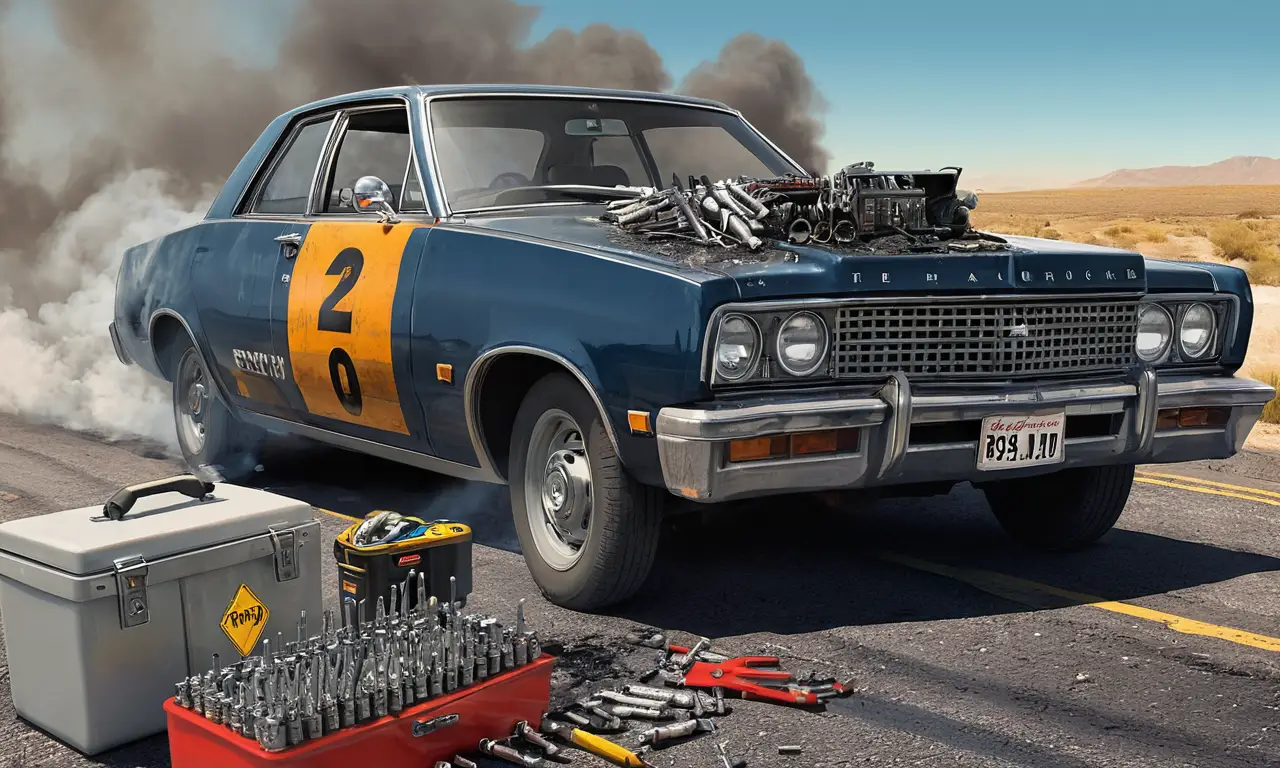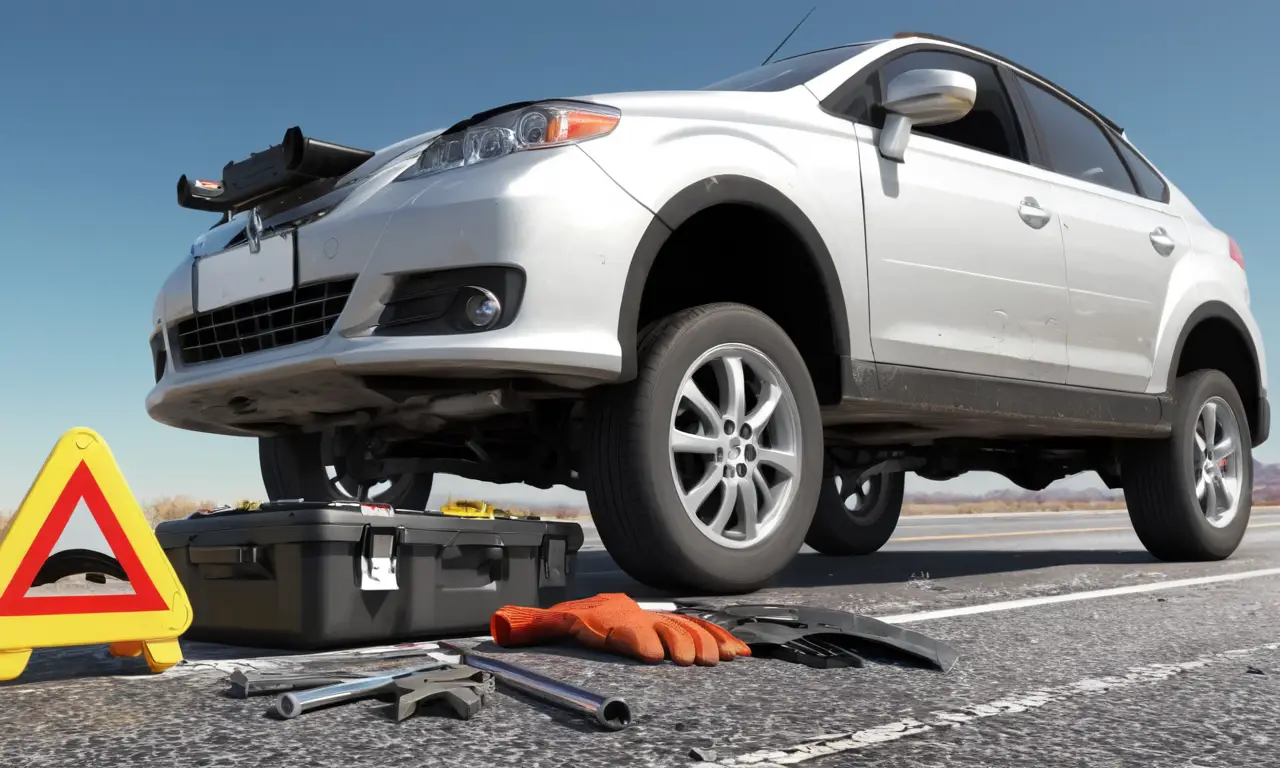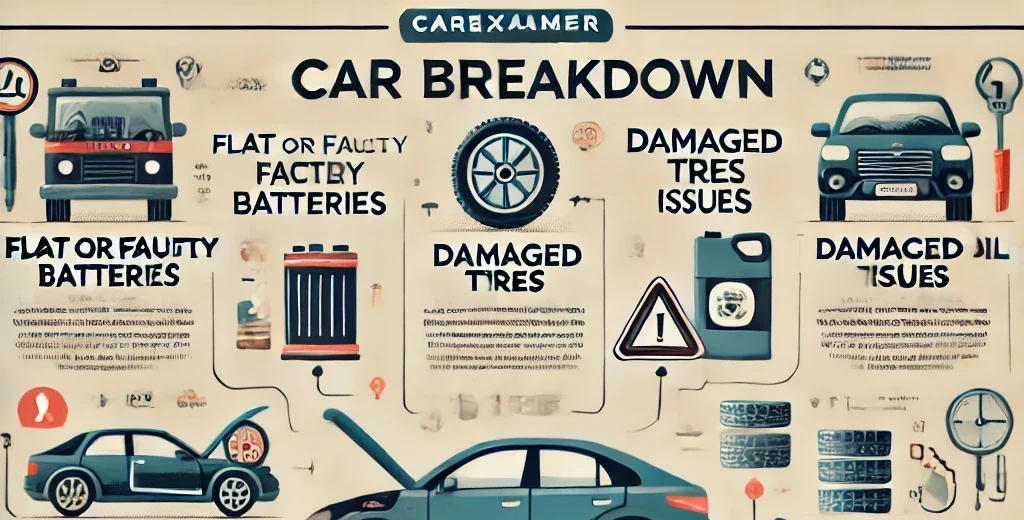Car breakdowns are a frustrating and often inconvenient experience. They can happen unexpectedly, leaving you stranded on the side of the road or delaying important plans. Understanding why do cars break down is crucial for both preventing future issues and knowing how to respond when they occur. This article will delve into common car breakdown causes, explore specific problems that can arise in different vehicle systems, and provide valuable tips on how to prevent breakdowns altogether.
This comprehensive guide will cover a range of potential issues, from engine troubles and transmission problems to brake system failures, electrical malfunctions, and tire-related concerns. By understanding these common culprits, you can take proactive steps to keep your car running smoothly and avoid the stress of unexpected breakdowns.
Common Car Breakdown Causes
Car breakdowns stem from a variety of factors, often stemming from wear and tear, neglect, or unforeseen mechanical failures. Routine maintenance is crucial for preventing many breakdowns, but even well-maintained vehicles can experience issues. Some common causes include:
- Age: As cars age, their components naturally wear down, increasing the likelihood of breakdowns.
- Driving Habits: Aggressive driving, frequent short trips, and overloading your vehicle can put extra strain on its systems, leading to premature wear and tear.
- Environmental Factors: Extreme temperatures, harsh road conditions, and exposure to moisture can all contribute to car problems.
Engine Problems
The engine is the heart of your vehicle, and any issues here can have significant consequences. Some common engine problems that can lead to breakdowns include:
Spark Plug Failure
Spark plugs ignite the fuel-air mixture in the engine cylinders. Worn or faulty spark plugs can cause misfires, reduced power, and even complete engine stalling.
Oil Problems
Engine oil lubricates moving parts, reducing friction and wear. Insufficient oil levels, contaminated oil, or a malfunctioning oil pump can lead to severe engine damage. Regular oil changes and level checks are essential for preventing engine problems.
Timing Belt/Chain Issues
The timing belt or chain synchronizes the movement of the engine’s valves and pistons. A broken or worn timing belt or chain can cause catastrophic engine damage, leading to a complete breakdown.
Transmission Issues

The transmission transfers power from the engine to the wheels. Transmission problems can make it difficult to shift gears, cause slipping, or result in complete loss of power.
Fluid Leaks
Transmission fluid lubricates and cools the transmission components. Leaks can lead to overheating and damage, ultimately causing a breakdown. Regular fluid checks and repairs are crucial for preventing transmission issues.
Worn Clutch (Manual Transmissions)
The clutch allows you to engage and disengage the engine from the transmission in manual vehicles. A worn clutch can make it difficult to shift gears smoothly and may eventually lead to complete failure.
Brake System Failures
The brake system is essential for safe driving, and any issues here can be extremely dangerous.
Worn Brake Pads/Rotors
Brake pads and rotors wear down over time. When they become too thin, braking performance is reduced, increasing the risk of accidents. Regular inspections and replacements are necessary to maintain safe braking.
Brake Fluid Leaks
Brake fluid transmits pressure from the brake pedal to the calipers. Leaks can cause a loss of braking power and lead to a complete brake failure.
Electrical System Malfunctions
The electrical system powers various components in your car, including lights, ignition, and sensors.
Battery Problems
A weak or dead battery can prevent your car from starting. Regular battery maintenance, such as cleaning terminals and checking voltage, is important for preventing issues.
Alternator Failure
The alternator charges the battery while the engine is running. A faulty alternator can lead to a drained battery and ultimately prevent your car from starting.
Tire Problems

Tires are crucial for safe handling and traction.
Underinflation/Overinflation
Incorrect tire pressure can affect handling, fuel efficiency, and tire wear. Regularly checking and adjusting tire pressure is essential.
Punctures/Treads Worn Down
Punctures or severely worn treads can compromise your car’s safety and handling. Inspect your tires regularly for damage and replace them when necessary.
Preventing Car Breakdowns
While some breakdowns are unavoidable, many can be prevented with proper care and maintenance:
- Regular Maintenance: Follow the manufacturer’s recommended maintenance schedule for oil changes, fluid checks, filter replacements, and inspections.
- Address Warning Lights: Don’t ignore warning lights on your dashboard. They often indicate potential problems that need attention.
- Drive Responsibly: Avoid aggressive driving habits, such as speeding and hard braking, which can put extra strain on your vehicle.
Conclusion
Understanding the common causes of car breakdowns and taking proactive steps to prevent them is essential for every driver. By staying informed about potential issues, performing regular maintenance, and addressing warning signs promptly, you can significantly reduce the risk of experiencing a frustrating and inconvenient breakdown. Remember, a well-maintained car is a safer and more reliable vehicle.


